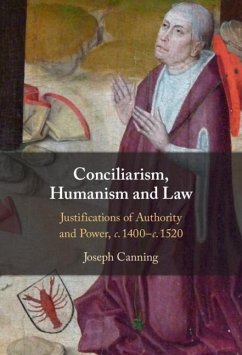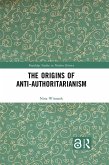How was power justified in late medieval Europe? What justifications did people find convincing, and why? Based around the two key intellectual movements of the fifteenth century, conciliarism in the church and humanism, this study explores the justifications for the distribution of power and authority in fifteenth- and early sixteenth-century Europe. By examining the arguments that convinced people in this period, Joseph Canning demonstrates that it was almost universally assumed that power had to be justified but that there were fundamentally different kinds of justification employed. Against the background of juristic thought, Canning presents a new interpretative approach to the justifications of power through the lenses of conciliarism, humanism and law, throwing fresh light on our understanding of both conciliarists' ideas and the contribution of Italian Renaissance humanists.
Dieser Download kann aus rechtlichen Gründen nur mit Rechnungsadresse in A, B, BG, CY, CZ, D, DK, EW, E, FIN, F, GR, HR, H, IRL, I, LT, L, LR, M, NL, PL, P, R, S, SLO, SK ausgeliefert werden.









